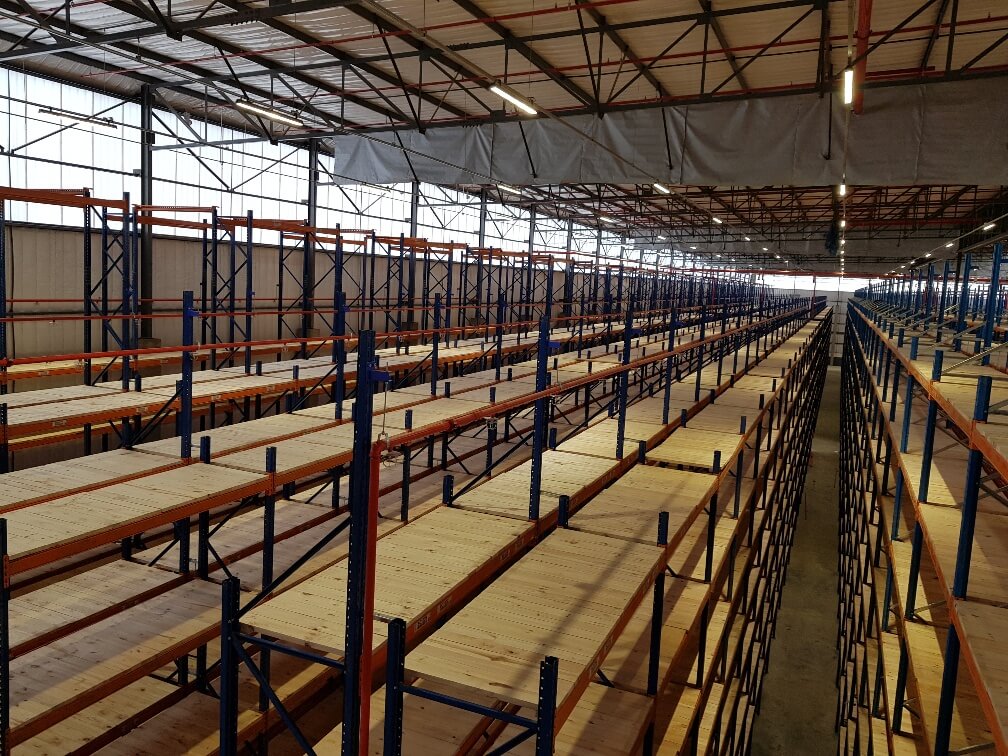It might seem logical to focus primarily on your inventory when it comes to practical warehouse storage management. However, the foundation of a productive storage system is the shelving or racking type you select. The Boston Consulting Group reported that global net wealth rose by 4.3% in 2023. Storage solutions have been advancing rapidly to cater to these increasing consumer demands and expanding global wealth. Thus, choosing the right shelving system has never been more important.
Systems like warehouse shelving and long-span racking are engineered to optimise limited floor space. These solutions allow small or large businesses to adjust their inventory management tactics as they scale their operations. Although these systems share similarities, knowing their distinct characteristics can help you choose the right one for your needs. This article compares warehouse vs. long-span shelving to provide actionable insights to help warehouse managers and business owners elevate their storage systems.
Warehouse vs. Long-Span Shelving Overview
Before exploring the details, let’s clarify the overarching difference between warehouse and long-span shelving. Warehouse shelving normally refers to tough industrial-grade systems created for heavy-duty applications. In contrast, long-span shelving focuses on versatility, balancing strength with adaptability for medium- to heavy-weight goods.
Warehouse Shelving Differences
Warehouse shelving is synonymous with strength and high capacity. These systems are built to handle large, heavy items and are mainly used in industrial or distribution centres where bulk storage is required.
Key features of warehouse shelving include a high load capacity. It was engineered to support heavy pallets, machinery, and oversized products. It also has a fixed structure that is usually bolted and anchored to the floor for maximum stability. Furthermore, warehouse shelves can be custom-made for expansion. Their modular configurations can be scaled up or integrated with conveyor systems. Finally, they are resilient and made from high-strength steel to withstand industrial wear and tear.
Learn more about warehouse shelving by reading: Making the Most Effective Use of Your Warehouse Shelving.
Practical Applications
- This system is ideal for pallet storage. It is great for bulk goods stored on pallets and accessed via forklifts.
- This shelving is suitable for heavy equipment storage. It is mainly used in manufacturing to store machinery or tools.
- This solution is useful for high-density warehousing because it maximises vertical space in large warehouses.
Long-Span Shelving Differences
Long-span shelving balances strength and flexibility. It is perfect for medium-weight goods and offers more adaptability than traditional warehouse shelving. It is therefore built for hand-loading items.
Key features of long-span shelving include its applicability to moderate load capacities. It can handle medium to heavy items but isn’t made for extreme weight loads. These shelves are also adjustable and can be easily reconfigured to accommodate different product sizes. They are additionally suitably accessible. They are best for picking operations because they are designed for manual use. Lastly, installing long-span shelves is simpler and quicker than warehouse shelving.
Practical Applications
- These shelves fit retail backrooms because they adequately store boxes, inventory, or seasonal goods.
- This system suits e-commerce operations and is useful for organizing SKUs for easy picking.
- This solution organises small to medium warehouses. It is appropriate for businesses with diverse product sizes and weights.
Discover Krost as a top long-span shelving supplier in South Africa by contacting us.
Comparing Warehouse and Long-Span Shelving: The Versatility of Industrial Shelving Systems
A substantial consideration when choosing between warehouse and long-span shelving is versatility. Modern industrial shelving systems offer various adaptations to boost utility.
Enhancements for Versatility
- Bolted Shelving and Catwalk Aisles: These extensions help optimize vertical space by creating additional storage levels accessible via walkways.
- Integration with Automated Systems: Pairing shelving with automated guided vehicles or carts can refine picking and stocking functions.
- Hybrid Configurations: Combining long-span shelving for picking with warehouse shelving for bulk storage can provide the best of both worlds.
Choosing the Right Fit
Warehouse storage solutions are made to accommodate the growing needs of wealthier global consumers. However, certain criteria determine the best solution for your storage space including availability. Warehouse shelving is better suited for larger spaces with high ceilings, while long-span shelving is ideal for smaller, more compact areas. Your inventory type is another factor. Heavier, bulkier goods lean towards warehouse shelving, whereas varied, smaller items are most applicable to long-span systems. Your budget is a final element. Long-span shelving is typically a more budget-friendly option for small to medium operations, with a lower upfront cost.
Conclusion
Your business’s unique characteristics such as operational demands, space constraints, and inventory type can help you select the right shelving system. Warehouse shelving offers unparalleled strength and capacity for heavy-duty applications, so it’s indispensable for large-scale operations. Conversely, long-span shelving provides flexibility and ease of use. Therefore, it’s a practical choice for businesses with dynamic storage requirements.
You can install a storage solution that optimises space, improves performance, and supports your long-term production goals by knowing each system’s main differences and advantages. Implementing the right system will revolutionise how you store and manage your goods, whether you choose warehouse shelving, long-span shelving, or a combination of both. Whichever solution is right for you, trust Krost Shelving as your racking and shelving specialist!
